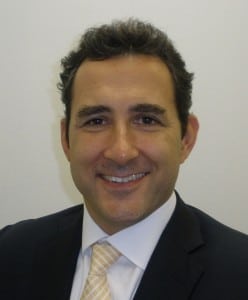SpeedCast CEO Examines Potential in Oil & Gas Market
[Via Satellite 11-11-2015] SpeedCast has been one of the most active companies in the satellite sector over the last two years. Recent acquisitions of Hermes Datacomms and SAIT Communications give it a stronger position in both the oil and gas, and maritime sectors. The company also recently acquired NewSat’s infrastructure assets. Its Australasian network now has four teleports in Australia, one teleport in Papua New Guinea, as well as wireless networks there. SpeedCast has also upgraded its wireless networks in Papua New Guinea and invested in two O3b gateways in Port Moresby and Lae. It has created new dedicated networks over Asia, Australia and Africa as it looks to serve different market segments.
The acquisition of Hermes Datacomms, in particular, gives SpeedCast great exposure to the oil and gas market. Pierre-Jean Beylier, CEO of SpeedCast, admits that energy had been a small but growing part of the SpeedCast business, but that the company decided in 2014 to put a much bigger emphasis on this industry because it saw significant growth potential. Beylier says the company wants to be a “major player” in the energy sector.
However, what was interesting about the acquisition of Hermes Datacomms is that it comes at a time when the oil and gas market is particularly challenging for all players. Beylier, however, sees such turbulence as an opportunity for SpeedCast. “Customers are looking for cost savings and we feel we are in a good position to provide them with cost-effective services. This creates a compelling event for customers to explore changing provider, and it has already been happening: we have some concrete examples that the realization of our vision is in motion,” he says. “The current unfortunate conditions in the oil and gas sector have created an opportunity for SpeedCast to identify and recruit talents, attracted by our unique growth momentum. This is allowing us to build up an outstanding team that I believe will be among the best in the industry.”
SpeedCast, is one of the new breed of service providers, looking to serve a number of verticals across emerging markets. While using satellite technology is a key part of its strategy, Beylier is keen to point out that the company is not limiting itself to satellite. Its mission is to enable critical communications and IT services for its customers, in most cases, in challenging and remote locations. The company plans on fulfilling this mission with a technology-agnostic approach, selecting the best possible technology for each specific requirement. SpeedCast is operating services and networks based on wireless technologies, microwave, fiber, etc. “Technologies other than satellite bring different benefits to oil and gas customers and therefore play an important role. They are also key elements in providing multiply redundant solutions, ensuring that no single point of failure can threaten smooth operations. We expect hybrid solutions, combining different technologies, to gain momentum, and the new high throughput satellites will be one part of our overall toolkit to deliver a superior customer experience,” he says.
In terms of trends in the market, Beylier believes oil and gas customers are always seeking additional bandwidth to allow for remote operations and automation of certain tasks at the remote site, which can lead to cost savings. He also sees video being more widely used for a variety of requirements, especially for offshore sites where monitoring of physical security and inspection are growing in demand. Beylier also believes the “digital oil field” is coming our way and will require more bandwidth. In other areas, he highlights crew welfare as key as a younger generation begins working at these remote sites and the expectation to stay connected with their own devices is becoming an employee retention challenge today.
But, despite the optimism, it is a tough market right now. “However, this being said, the oil and gas market is going through a very challenging time right now, as can be seen every week in the press and in the market. The drilling rig count is one-third of what it was less than two years ago. The drillers, operators and service companies have all reduced their budgets and head counts. Customers are also in some cases looking for shorter term contracts. New work will be a challenge in 2016 but our focus is on offering value and flexibility to customers who may be looking for options to reduce their cost or improve their efficiency,” Beylier adds.
One thing that SpeedCast cannot be accused of this year is a lack of ambition. The company has made a number of acquisitions and is definitely a company to watch in the satellite sector. While the oil and gas market is tough, Beylier has not doubts it will be a good market for SpeedCast. “We see strong growth opportunities ahead for our oil and gas business. Our ability and commitment to invest in infrastructure and people to fulfill our customers’ specific requirements is key for our future success. We are emerging as the new alternative for a growing number of customers and I therefore expect us to continue gaining market share rapidly,” he says.
